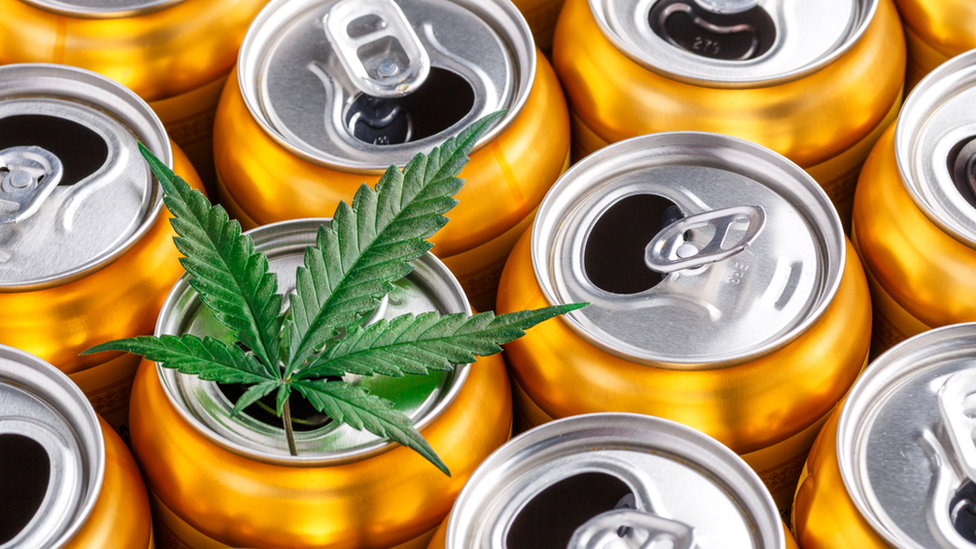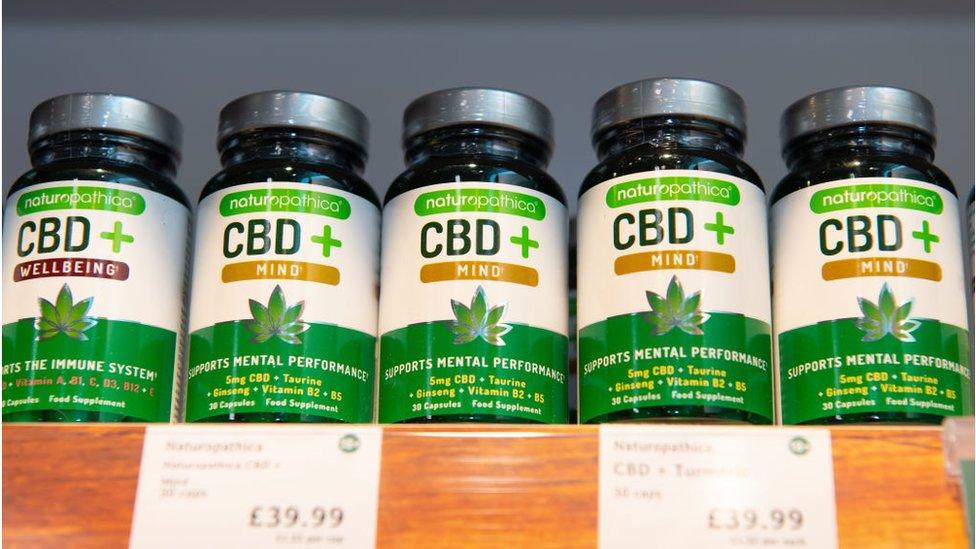Cannabidiol safe daily dose limit cut by food regulator
- Published

UK food regulators have lowered the recommended safe daily dose of cannabidiol (CBD), a cannabis extract present in many different High Street products, including drinks and snacks.
The Food Standards Agency, external says the advice is precautionary, following concerns long-term use might cause liver and other health problems.
Adults are being advised to have no more than 10 milligrams of CBD a day.
The previous recommended safe daily dose, from 2020, was 70 milligrams.
And the FSA is warning some products available in shops and online contain more than 10 milligrams of CBD per serving, which is about four to five drops of 5% CBD oil.
FSA chief scientific advisor Prof Robin May, said: "The more CBD you consume over your lifetime, the more likely you are to develop long-term adverse effects, like liver damage or thyroid issues.
"The level of risk is related to how much you take, in the same way it is with some other potentially harmful products such as alcoholic drinks."
'Health risks'
Two independent committees reviewed the scientific evidence, including data submitted by manufacturers of CBD products.
The FSA, which has been regulating the CBD market since 2019, says there appears to be no "acute safety risk" from consuming more than 10 milligrams of CBD a day but regular consumption above this level could pose health risks.
Derived from cannabis but without psychoactive properties, CBD is sold in some pharmacies and health-food shops as a supplement and used to treat conditions such as pain or insomnia.
CBD products can be sold as:
oils
drops, tinctures and sprays
gel capsules
sweets and confectionery
bread and other bakery goods
drinks
Certain groups of people - including children, pregnant women and people taking other medications - are advised not to use CBD.
The Association for the Cannabinoid Industry said it would examine the evidence behind the FSA recommendations.
"We highlight to consumers that this guidance demonstrates the FSA still considers CBD to be safe and their advice relates to lifetime consumption of daily high doses of CBD," a spokesman said.
The recommendation is only advisory - regulators are not requesting that any products are taken off shelves.
Food Standards Scotland has issued the same advice.
Emily Miles, CEO of the FSA, said: "We understand that this change to our advice will have implications for products currently on the market that contain more than 10mg of CBD per serving.
"We will be working closely with industry to minimise the risk, to ensure consumers are not exposed to potentially harmful levels of CBD."
The FSA has a list of CBD food products, external that are under review. Products on this list are not formally authorised for sale, they have not yet been fully assessed for safety, but they are linked to applications which are moving through the novel foods process.
Inclusion on the list is no guarantee that they will be authorised, but unlisted products should not be sold in England and Wales.
Andrea Martinez-Inchausti, Assistant Director of Food at the British Retail Consortium, said: "Retailers will follow any and all FSA advice on the sale of products containing CBD, and take their obligations around these products very seriously."
Related topics
- Published13 February 2020
